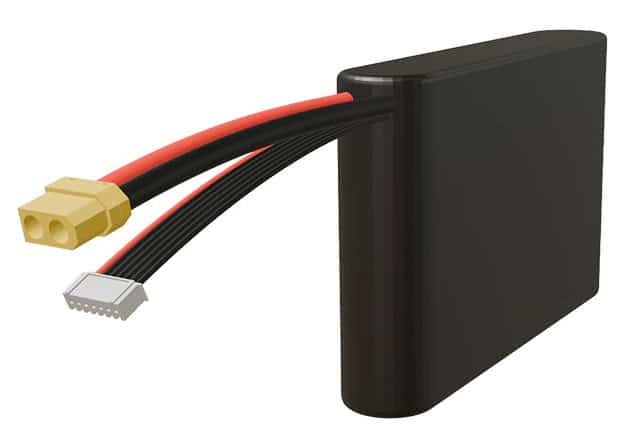STANDARD BATTERIES
 Mobile Power Solutions (MPS) is your partner for standard Lithium-ion battery packs that are available for shipment and approved to the UN 38.3 transportation regulations. We are AS 9100 and ISO 9001:2015 certified, as well as ANAB accredited to ISO/IEC 17025:2017. Our 10,000 Sq. Ft. state-of-the-art battery manufacturing and testing facility in located in Beaverton, Oregon. These standard batteries are just a few of the 100+ battery products produced by MPS, many for Fortune 10 customers.
Mobile Power Solutions (MPS) is your partner for standard Lithium-ion battery packs that are available for shipment and approved to the UN 38.3 transportation regulations. We are AS 9100 and ISO 9001:2015 certified, as well as ANAB accredited to ISO/IEC 17025:2017. Our 10,000 Sq. Ft. state-of-the-art battery manufacturing and testing facility in located in Beaverton, Oregon. These standard batteries are just a few of the 100+ battery products produced by MPS, many for Fortune 10 customers.
MPS offers our standard Li-ion batteries for several uses; low volume applications that do not justify a custom battery development, initial evaluation batteries to power your device during your development process, or high volume production batteries for your portable device.
MPS produces our standard Li-ion batteries in our production facility in Beaverton, Oregon. In addition to our AS 9100 and ISO 9001:2015 certification, this facility is registered for ITAR programs. This allows our defense-related customers to utilize our standard batteries in classified or import/export controlled contracts.
Focus Applications Include;
MPS Standard Li-ion batteries are differentiated with the following features and capabilities;
- Utilizes a custom-engineered Battery Management System (BMS) for maximum performance and cycle life. The BMS extends cycle life by protecting the cells within the battery from abuse, including over-charge, over-discharge, over-voltage, under-voltage, over-current, over-temperature, and short circuit conditions. Additionally, the BMS provides internal cell balancing during charging, which eliminates the need for a balancing charger and a balancing cable.
- Utilizes the latest Nickel, Manganese, & Cobalt (NMC) cell chemistry in 18650 and 21700 format cells to deliver the best energy density and power delivery.
- Extends the cycle life of the battery with cell and lot matching for each battery. All batteries are built using cells for a common lot. All cells selected for a specific battery are matched so there is minimal variation of their initial capacity, internal resistance, and voltage. This cell matching process maximizes performance, increases lifespan, and enhances safety of the battery.
- Each battery model is complaint with the UN 38.3 Transportation Regulations. These approvals include the battery, as well as the packaging that transports the battery during delivery. UN 38.3 Approvals are critical to ensure safe transport of the batteries and eliminate legal liability due to transportation issues. Ask for our UN 38.3 compliance certificate.
Optional features and services include;
- Fuel gauging leveraging Texas Instruments legendary Impedance Track technology. This fuel gauging provides very accurate state-of-charge information throughout the life of the battery. This data is delivered by an accessory cable harness that connects the battery to the device, and utilizes SMBus, I2C, or CANBus serial communications.
- Using the MACCOR battery testers and environmental chambers in our test battery facility, we can simulate your specific dynamic load profiles and environmental conditions expected over the lifetime our batteries. If you suspect that the selected battery needs to perform outside the parameters of our datasheet (as most do), then we can perform those tests prior to your purchase decision. Cell capacity and rate capability degrade due to discharge cycles, temperature, age, and charge cycles. Understanding the performance curves over the life of the battery enables customers to make informed purchase decisions.
- Each battery model is complaint with the UN 38.3 Transportation Regulations. Optionally, MPS can upgrade the agency approvals if the customer requires approvals beyond the obligatory UN 38.3. Additional approvals that could be applied to these batteries include RTCA DO-227/DO-311, TSO-C142, IEC 62133, and UL 2054. Leveraging our battery testing facility, MPS is qualified and equipped to provide these approvals.


